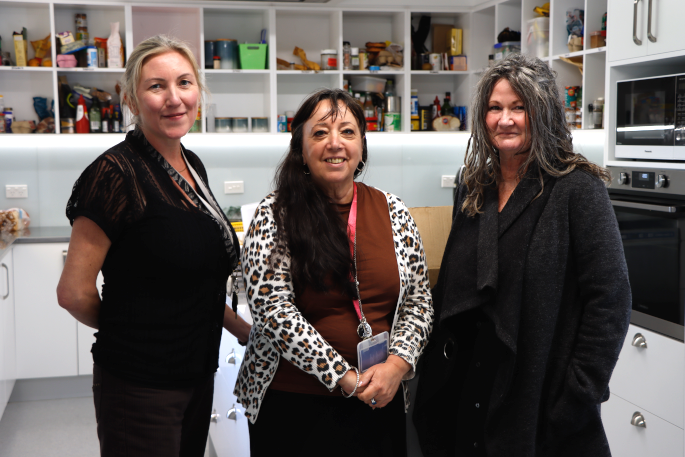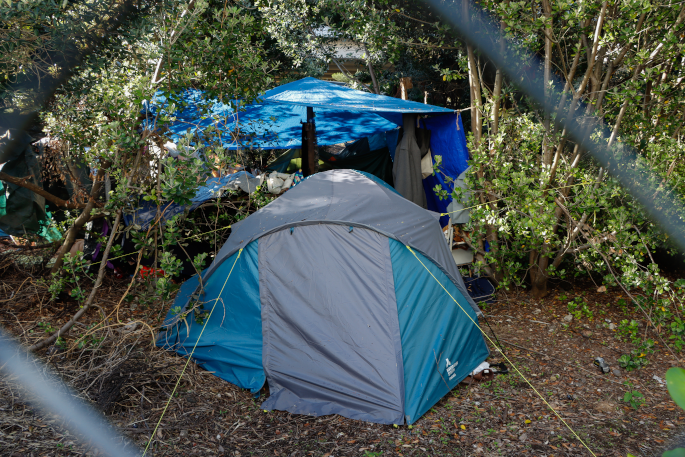For many people, being homeless is not a choice and can happen to anyone at any time.
During World Homeless Day today, people are being urged to remember that “being homeless is not a choice, no one decides to go rough and sleep out on a cold or wet night, and regardless of what many people think, homelessness can knock on your door no matter who you are or what do you do for a living, if you are young or old”.
“The purpose of World Homeless Day is to draw attention to the needs of people who experience homelessness locally and provide opportunities for the community to get involved in responding to homelessness,” says a statement on worldhomelessday.org
Homelessness is not something that happens far away from us or we only see on the news, homelessness is a reality.
Authorities say they do not have any specific registered cases of homelessness in the city currently, however, you can see for yourself by looking under bridges or in reserves that there are a number of people sleeping in cars, tents, or just on the streets.
By August this year, the average number of known rough sleepers was 36 people across 17 tent sites.
In Tauranga, many organisations are working together with the Ministry of Social Development to help people facing homelessness.
One of those is Takitimu House.
It has been in operation for nine years now, and since opening its doors for the first time in September 2014 it has been supporting men in situations of homelessness.
“Our main goal at Takitimu House is to transform their lives and help them to overcome traumas and reconnect with society. We have a full team available on-site to support the men with their hopes and dreams,” says Takitimu House operation manager Annamarie Angus.
“This is not a job of a few people, we work alongside other organisations like, Work and Income, Tauranga Hospital, and mental health [services], attending to their real needs instead of just having them sleeping here.”
 Takitimu House support workers Lynn Cunningham, left, and Odile Sagardoys, with operation manager Annamarie Angus.
Takitimu House support workers Lynn Cunningham, left, and Odile Sagardoys, with operation manager Annamarie Angus.
The men at Takitimu House usually participate in events that help them to increase their self-esteem and trust. They are also connected with agencies that teach them how to manage debts, budgets, and everything related to having and maintaining a house.
Annemarie says they also receive training and learn new skills which help them to find jobs and build a better life.

“We are so proud at Takitimu house of some of our men who, during their time here, have received their qualifications in different areas and now have better and more stables lives.”
Tauranga City Council Community Development and Emergency Management manager Paula Naude spoke to SunLive about the situation in Tauranga.
This is what she says:
How can we define homelessness and how many homeless people are in Tauranga at this moment?
“Homelessness is a complex issue that demands a collective community response. There are no easy answers. When people think of homelessness, they often think of people sleeping rough, in tents or cars. But homelessness is more than just those at the critical end of the spectrum. The region, and New Zealand as a whole, does not currently have a method to accurately count homelessness numbers, (across the full housing spectrum).”
What reasons take people into homelessness?
"Homelessness is not a choice. In most cases, homelessness is not something that happens overnight, it is often a culmination of events or factors. Factors like poverty, discrimination, sometimes a lack of housing and rising rents collide with individual circumstances like losing a job, accumulation of debt, illness, or relationship breakdown which can result in people finding themselves homeless.”
What is the Tauranga City Council doing about this?
“This is where the Kāinga Tupu Taskforce comes in,” says Paula.
“Tauranga City Council is a key Taskforce member, and we have an advisor within our Community Development team who advocates for the needs of people experiencing housing stress and homelessness in the city. Our adviser also proactively works with community and government agencies to find proactive and sustainable solutions to provide support services for our homeless community.
“Kāinga Tupu provides a community-agreed collaborative approach with local government agencies and community providers to support people experiencing homelessness and to look for opportunities to end homelessness in the Western Bay of Plenty sub-region.”

What can people do when they have a concern about a possible case of homeless people in their neighbourhood?
"People can reach out to us 24/7 on 07 577 7000 if they are concerned about someone sleeping rough or would like information on how to support someone who is experiencing homelessness.
“One of our bylaw officers will then check on their well-being and help connect them with support services.”



3 comments
Very good article.
Posted on 10-10-2023 12:46 | By morepork
Having experienced homelessness and lack of shelter on a number of occasions in my adventurous youth, I believe it is an often misunderstood problem. This article describes the condition and some of the background very well. (I only ever met ONE homeless person who actually wanted to be homeless. It was in the U.K. and he did not want to be any part of the normal society and resented even having his birth registered... People abusing substances are a different case.)
The Master
Posted on 10-10-2023 13:20 | By Ian Stevenson
The easy answer is that this all reflects "Bad decisions by persons professing to be adult/s".
Hmmm
Posted on 11-10-2023 18:46 | By Yadick
Not always by choice or poor decision.
Leave a Comment
You must be logged in to make a comment.